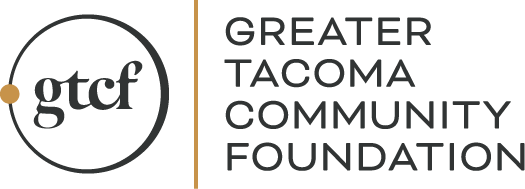
Community
9
Expanded Learning Opportunities Help Students Learn Empathy and Cooperation
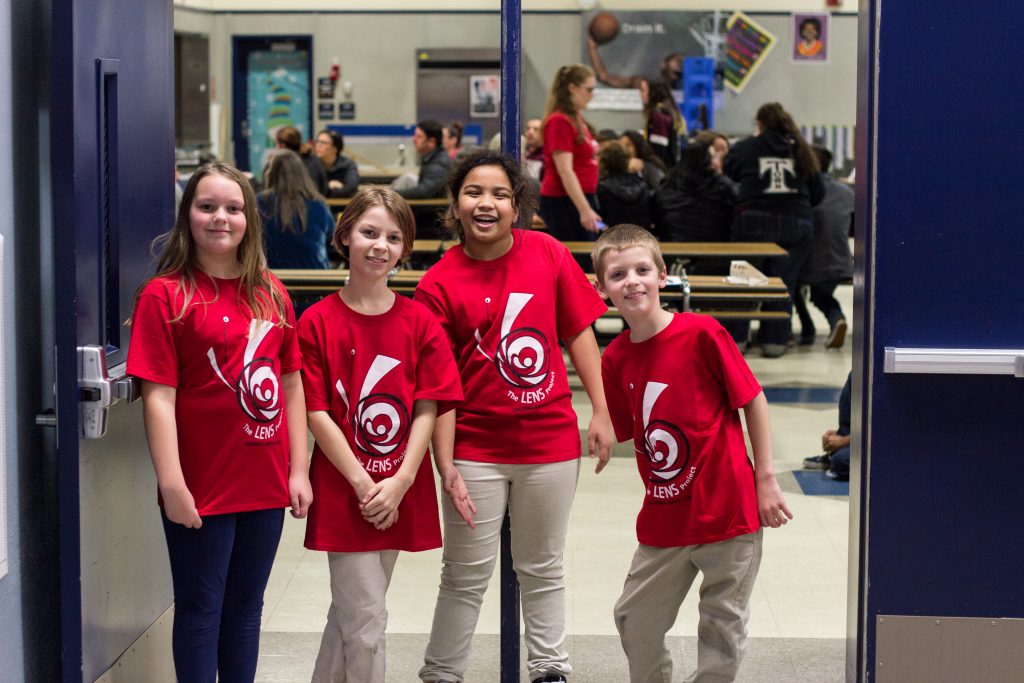
Standing at the door to their school gymnasium, Caleb and his classmates giggled playfully in a huddle. “Remember your audience can see you, so you are on stage now,” their director reminded them. They quickly straightened up and smiled, confidently taking their places to welcome their incoming guests.
“The nature of creating art is rooted in self expression, so going through the creative process is helping students to inform their own experiences and what it is they want to share with the world.”
Caleb and his fellow door greeters were participants in the LENS Project, an Expanded Learning Opportunity provided by Tacoma Arts Live. LENS, which stands for Learn Empathy Negotiation & Self, uses creative projects and art-based activities to teach positive social-emotional skills and foster the development of empathy for others. “When students learn how to recognize and identify their emotions, negotiate with others to solve conflict together in a peaceful way, and empathize with other people’s emotions and what they might be experiencing, those are skills that will serve them in whatever career or life path they pursue,” says Marsha Walner, Education Manager at Tacoma Arts Live.
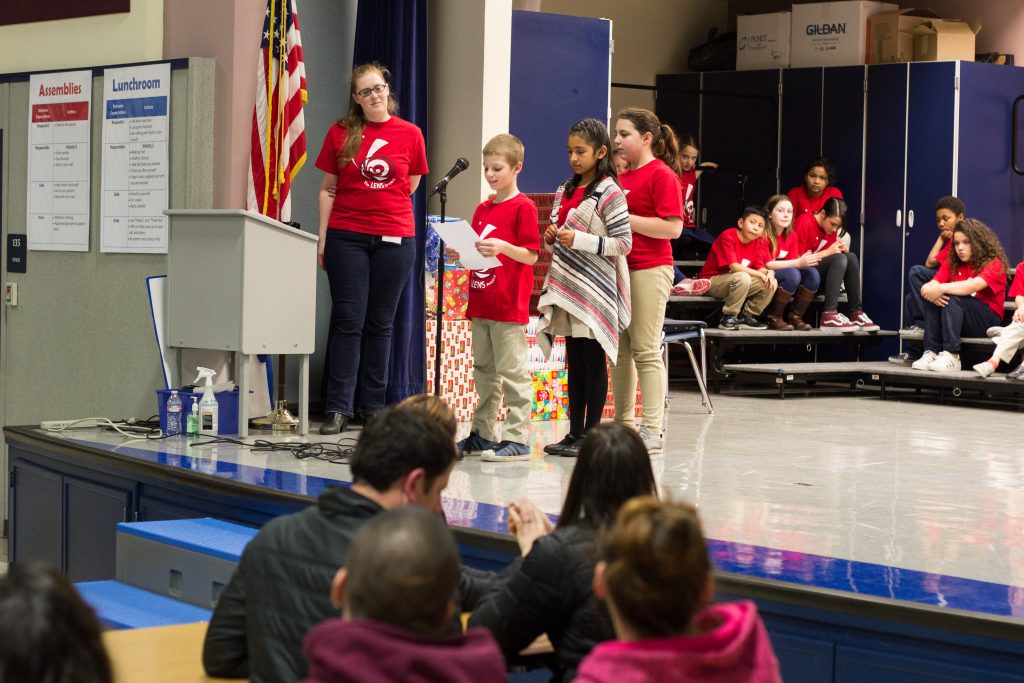
The program, which takes place over the course of 8-weeks, culminates with a family Skill Share event led by the students in which they become the teachers and share what they’ve learned with their friends and family. The students at Edison Elementary in Tacoma led off their Skill Showcase by inviting the audience to view their Frames of Reference projects, which were customized photo frames that each participant made illustrating their own personal roles in life and the expectations that go along with them.
Over the course of the 45-minute presentation, they also demonstrated several acting exercises they had learned and a couple dances where each student had the opportunity to add their own special move in the middle of the choreographed routine.
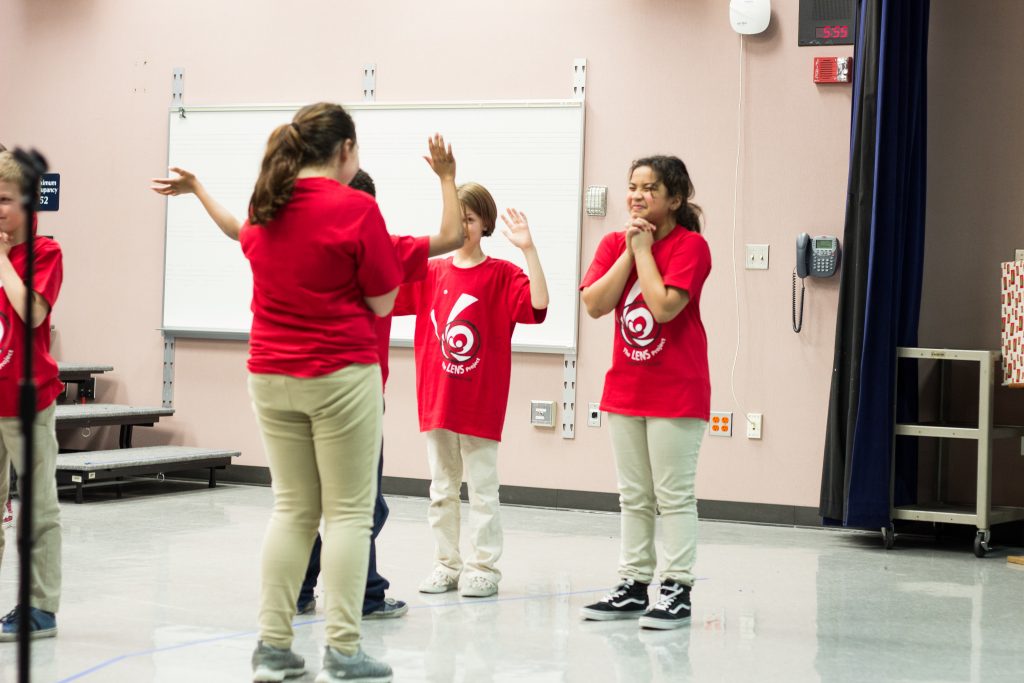
“The nature of creating art is rooted in self expression,” says Walner, “so going through the creative process is helping students to inform their own experiences and what it is they want to share with the world.” Walner adds that, in addition to inspiring self-expression, the LENS curriculum is also designed to engage students in group experiences that naturally teach them to work collaboratively with others to share ideas and develop resiliency to know they still have value even if their ideas don’t end up being used in the end product.
One of the highlights of the Showcase for Caleb was an activity called Emotion Shopping where he got to bring his mom up on stage and they took turns “trying on” each others emotions to see what they looked and felt like. “It taught us about empathy,” Caleb said, “I like it because you get to share your feelings and understand how other people feel too.”
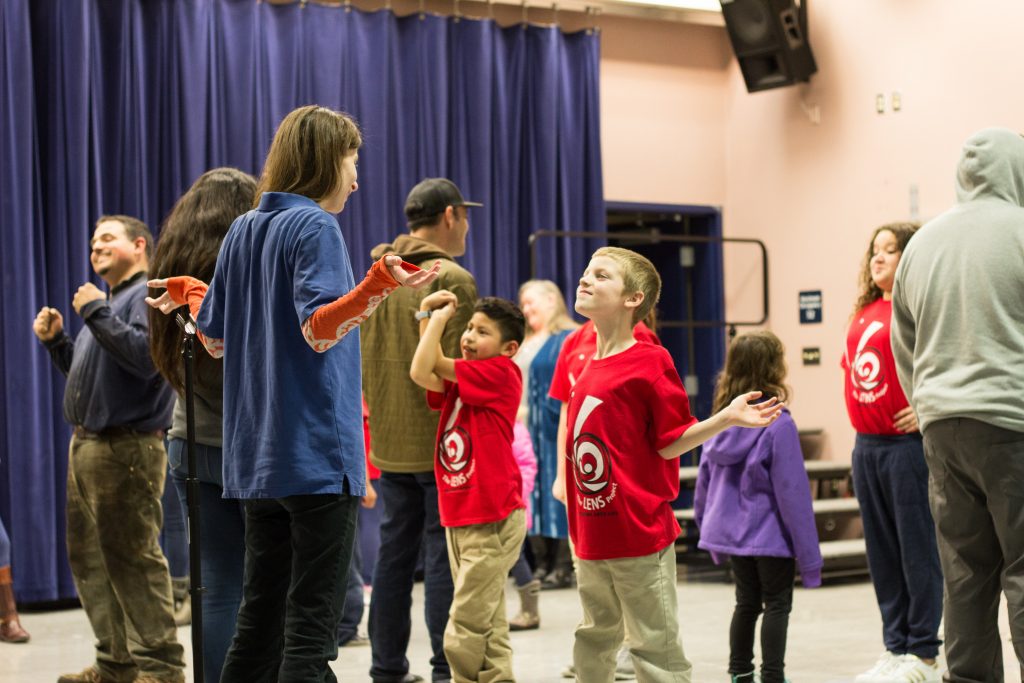
Beyond the individual skills students learn through LENS, Walner says the program has long-term benefits for the community as well. “We’ve researched a lot in how the social emotional learning and artistic learning can lead to reduction in crime rates and increases in civic engagement and community involvement, so we are looking to serve those needs as well our own intrinsic desire to make the arts accessible to all.”
Tacoma Arts Live is one of 24 organizations currently offering Expanded Learning Opportunities through the Tacoma Whole Child partnership. Students at 12 Elementary Schools in Tacoma now have access to Expanded Learning Opportunities like LENS through this community-wide effort to ensure every child is healthy, safe, engaged, supported, and challenged.
Greater Tacoma Community Foundation, Tacoma Public Schools, and numerous community partners are working together to expand this partnership by providing aligned, equitable, high quality social, emotional, and academic development opportunities to students in and out of school. To learn more about increasing Expanded Learning Opportunities for Tacoma youth, contact GTCF for ways to support programming.
Additional Resources for the Benefits of Providing Arts Education for Youth:
Center for Disease Control’s data and resources regarding Youth Violence and Prevention
The Collaborative for Academic, Social, and Emotional Learning
“Something to Say” Wallace Foundation report on after school arts programming
Serving All Students Through Theater
